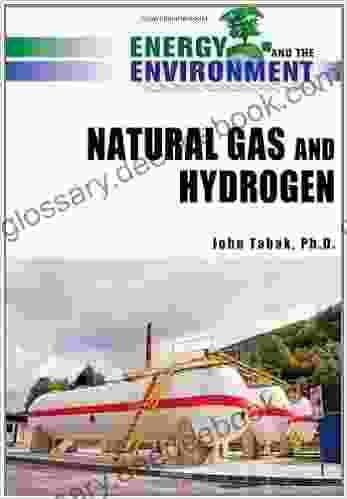Natural Gas, Hydrogen Energy, and the Environment: A Comprehensive Exploration

In the pursuit of a sustainable energy future, natural gas and hydrogen have emerged as promising alternatives to fossil fuels. Both resources offer significant advantages in reducing greenhouse gas emissions and mitigating environmental impact. This article will delve into the characteristics, advantages, and environmental implications of natural gas and hydrogen energy, exploring their potential as transformative forces in the transition to a greener planet.
Natural gas is a fossil fuel primarily composed of methane. While it is a non-renewable resource, it burns cleaner than other fossil fuels, releasing fewer greenhouse gases into the atmosphere. This makes natural gas a transitional fuel, providing a bridge between traditional fossil fuel sources and renewable energy technologies that are still in development.
- Lower greenhouse gas emissions: Compared to coal and oil, natural gas emits significantly lower levels of carbon dioxide and other greenhouse gases.
- Abundant availability: Natural gas is a widely available resource with large reserves located around the world.
- Reliable and cost-effective: Natural gas can be transported and stored efficiently, making it a reliable and cost-effective fuel source.
- Supports renewable energy: Natural gas can balance intermittent renewable energy sources, such as solar and wind, ensuring a stable and reliable energy supply.
While natural gas has a lower environmental impact than other fossil fuels, its extraction and combustion still pose certain challenges:
4.4 out of 5
| Language | : | English |
| File size | : | 5234 KB |
| Text-to-Speech | : | Enabled |
| Screen Reader | : | Supported |
| Word Wise | : | Enabled |
| Print length | : | 203 pages |
- Methane leakage: During extraction and transportation, natural gas can leak into the atmosphere. Methane is a potent greenhouse gas, with a global warming potential 25 times that of carbon dioxide.
- Water consumption: Natural gas extraction requires significant amounts of water, which can strain local water resources.
- Air pollution: Combustion of natural gas releases nitrogen oxides and particulate matter, contributing to air quality issues.
Hydrogen is a clean-burning fuel that produces only water vapor when used in fuel cells. It is considered a potential future energy carrier due to its high energy density and zero tailpipe emissions.
- Zero emissions: Hydrogen fuel cells emit only water vapor, making it a highly environmentally friendly fuel source.
- Abundant supply: Hydrogen can be produced from a variety of sources, including fossil fuels, renewable energy, and water.
- Energy storage: Hydrogen can be used to store energy from intermittent renewable sources, such as solar and wind.
- Versatility: Hydrogen can be used in a wide range of applications, including transportation, power generation, and industrial processes.
The production and use of hydrogen also have environmental considerations:
- Fossil fuel dependence: Currently, most hydrogen is produced from fossil fuels, leading to greenhouse gas emissions.
- Water consumption: Electrolysis, the process of splitting water into hydrogen and oxygen, requires significant amounts of water.
- Infrastructure development: Widespread adoption of hydrogen energy requires the development of extensive infrastructure for production, transportation, and storage.
While natural gas and hydrogen energy have distinct advantages and challenges, they can complement each other in the transition to a sustainable energy future. Natural gas can serve as a bridge fuel, reducing emissions while supporting the development of hydrogen infrastructure. Hydrogen, in turn, can provide a long-term, zero-emission fuel solution once production and infrastructure challenges are overcome.
- Hybrid systems: Combining natural gas and hydrogen in hybrid systems can reduce emissions and improve system efficiency.
- Power-to-gas: Surplus renewable energy can be used to produce hydrogen through electrolysis, converting electricity into a storable and transportable fuel.
- Carbon capture and storage: Carbon dioxide emissions from natural gas combustion can be captured and stored underground, further reducing greenhouse gas impact.
Natural gas and hydrogen energy offer compelling solutions for a cleaner and more sustainable energy future. While natural gas provides a transitional fuel with lower emissions, hydrogen holds the potential to become a zero-emission fuel source that can power a wide range of applications. By integrating these technologies and addressing their environmental challenges, we can accelerate the transition to a sustainable energy system that protects our planet and ensures a prosperous future for generations to come.
4.4 out of 5
| Language | : | English |
| File size | : | 5234 KB |
| Text-to-Speech | : | Enabled |
| Screen Reader | : | Supported |
| Word Wise | : | Enabled |
| Print length | : | 203 pages |
Do you want to contribute by writing guest posts on this blog?
Please contact us and send us a resume of previous articles that you have written.
 Book
Book Page
Page Chapter
Chapter Text
Text Reader
Reader Library
Library Paperback
Paperback E-book
E-book Newspaper
Newspaper Sentence
Sentence Bookmark
Bookmark Glossary
Glossary Preface
Preface Synopsis
Synopsis Annotation
Annotation Footnote
Footnote Manuscript
Manuscript Scroll
Scroll Codex
Codex Tome
Tome Bestseller
Bestseller Classics
Classics Library card
Library card Narrative
Narrative Biography
Biography Reference
Reference Thesaurus
Thesaurus Character
Character Resolution
Resolution Catalog
Catalog Archives
Archives Scholarly
Scholarly Academic
Academic Journals
Journals Rare Books
Rare Books Special Collections
Special Collections Dissertation
Dissertation Awards
Awards Reading List
Reading List Textbooks
Textbooks Ann Garcia
Ann Garcia Thom Wall
Thom Wall Sarina Dorie
Sarina Dorie Bryanna Farris
Bryanna Farris Nik Tarascio
Nik Tarascio Kathryn Jacques
Kathryn Jacques Kevin Carrico
Kevin Carrico Elton John
Elton John Lee Englestone
Lee Englestone Jim Palmer
Jim Palmer Ole J Mjos
Ole J Mjos Ready Set Go Books
Ready Set Go Books Jen Lowry
Jen Lowry Joe Stump
Joe Stump Graham Field
Graham Field August Wilson
August Wilson Christopher Barnett
Christopher Barnett Thomas Bunstead
Thomas Bunstead Kathleen Waters Sander
Kathleen Waters Sander Bob Gardner
Bob Gardner
Light bulbAdvertise smarter! Our strategic ad space ensures maximum exposure. Reserve your spot today!

 Clarence BrooksThe Ultimate Parent Guide: Lessons and Activities to Elevate Your Child's...
Clarence BrooksThe Ultimate Parent Guide: Lessons and Activities to Elevate Your Child's... Chase SimmonsFollow ·16.5k
Chase SimmonsFollow ·16.5k Greg CoxFollow ·15.4k
Greg CoxFollow ·15.4k Justin BellFollow ·12.5k
Justin BellFollow ·12.5k Mike HayesFollow ·11.4k
Mike HayesFollow ·11.4k Martin CoxFollow ·19.4k
Martin CoxFollow ·19.4k Felipe BlairFollow ·19.1k
Felipe BlairFollow ·19.1k Josh CarterFollow ·9.1k
Josh CarterFollow ·9.1k David Foster WallaceFollow ·16.6k
David Foster WallaceFollow ·16.6k

 Desmond Foster
Desmond FosterTravesti Life in the Favela: An Exploration of Identity,...
In the bustling...

 Bobby Howard
Bobby HowardCorruption and Development in South Korea and the...
Corruption is a major...

 George Martin
George MartinGaslighting, Blame Shifting, and Consent in Marriage: A...
Gaslighting,...

 Grayson Bell
Grayson BellOne Witch at a Time: Dive into the Enchanting World of...
Welcome to the Mystical Realm of...

 James Hayes
James HayesLatino Mass Mobilization: Immigration, Racialization, and...
Latino mass...

 August Hayes
August HayesMarxist Film Theory and Fight Club: A Long-Tail...
Marxist film theory,...
4.4 out of 5
| Language | : | English |
| File size | : | 5234 KB |
| Text-to-Speech | : | Enabled |
| Screen Reader | : | Supported |
| Word Wise | : | Enabled |
| Print length | : | 203 pages |










